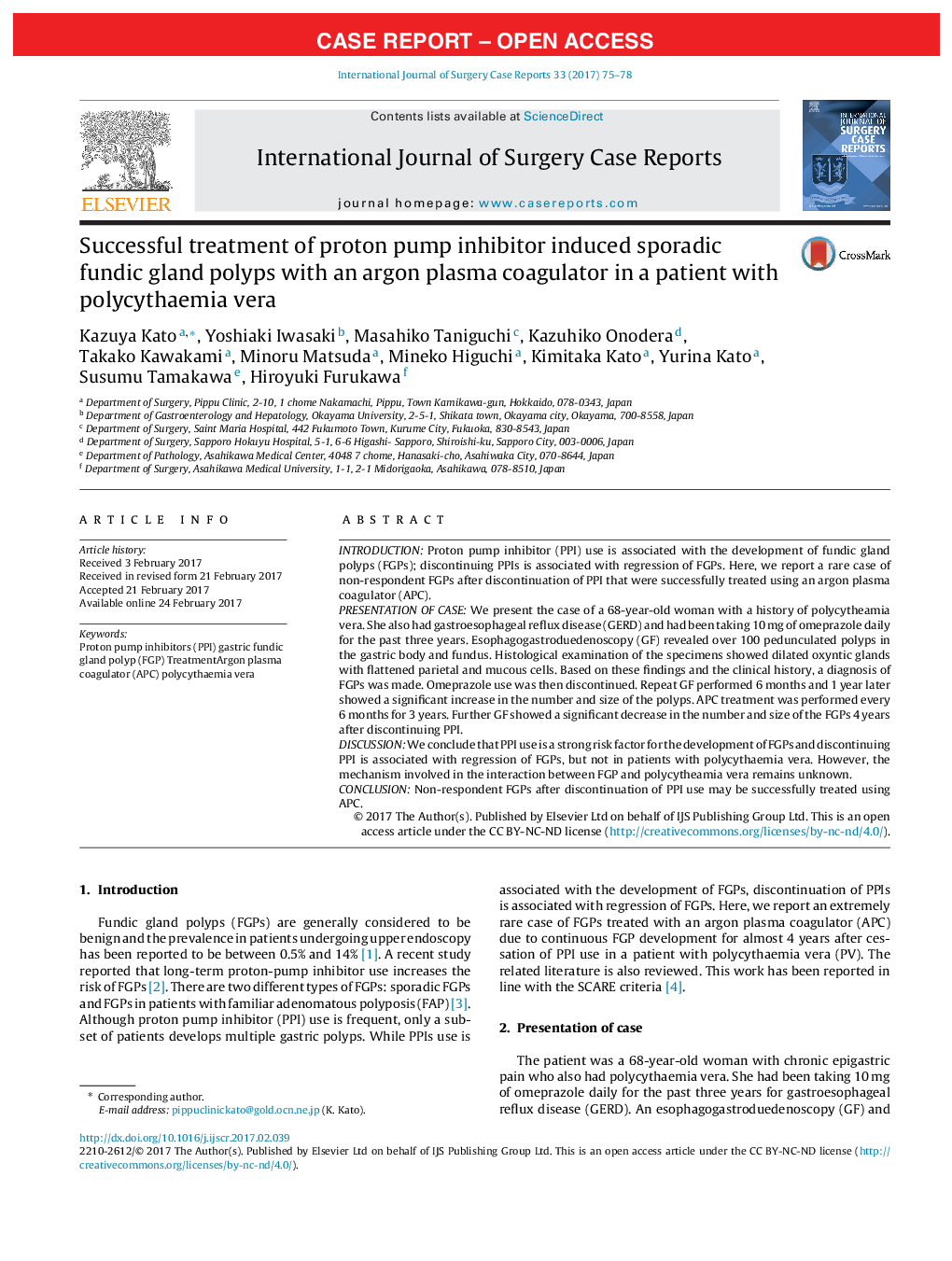| کد مقاله | کد نشریه | سال انتشار | مقاله انگلیسی | نسخه تمام متن |
|---|---|---|---|---|
| 5732870 | 1612081 | 2017 | 4 صفحه PDF | دانلود رایگان |
- Proton pump inhibitor (PPI) use is associated with the development of fundic gland polyps (FGPs).
- Discontinuing PPI is associated with regression of FGPs, but not in patients with polycythaemia vera.
- A rare case of non-respondent FGPs after discontinuing PPI use was successfully treated using APC.
- The mechanism involved in the interaction between FGP and polycytheamia vera remains unknown.
IntroductionProton pump inhibitor (PPI) use is associated with the development of fundic gland polyps (FGPs); discontinuing PPIs is associated with regression of FGPs. Here, we report a rare case of non-respondent FGPs after discontinuation of PPI that were successfully treated using an argon plasma coagulator (APC).Presentation of caseWe present the case of a 68-year-old woman with a history of polycytheamia vera. She also had gastroesophageal reflux disease (GERD) and had been taking 10âmg of omeprazole daily for the past three years. Esophagogastroduedenoscopy (GF) revealed over 100 pedunculated polyps in the gastric body and fundus. Histological examination of the specimens showed dilated oxyntic glands with flattened parietal and mucous cells. Based on these findings and the clinical history, a diagnosis of FGPs was made. Omeprazole use was then discontinued. Repeat GF performed 6 months and 1âyear later showed a significant increase in the number and size of the polyps. APC treatment was performed every 6 months for 3 years. Further GF showed a significant decrease in the number and size of the FGPs 4 years after discontinuing PPI.DiscussionWe conclude that PPI use is a strong risk factor for the development of FGPs and discontinuing PPI is associated with regression of FGPs, but not in patients with polycythaemia vera. However, the mechanism involved in the interaction between FGP and polycytheamia vera remains unknown.ConclusionNon-respondent FGPs after discontinuation of PPI use may be successfully treated using APC.
Journal: International Journal of Surgery Case Reports - Volume 33, 2017, Pages 75-78
